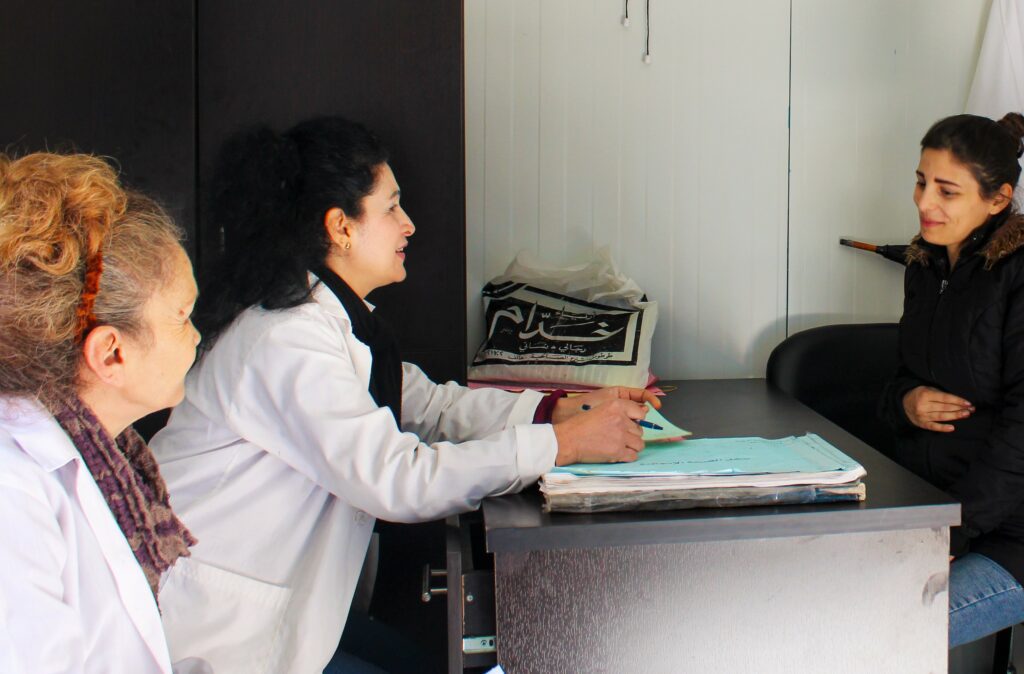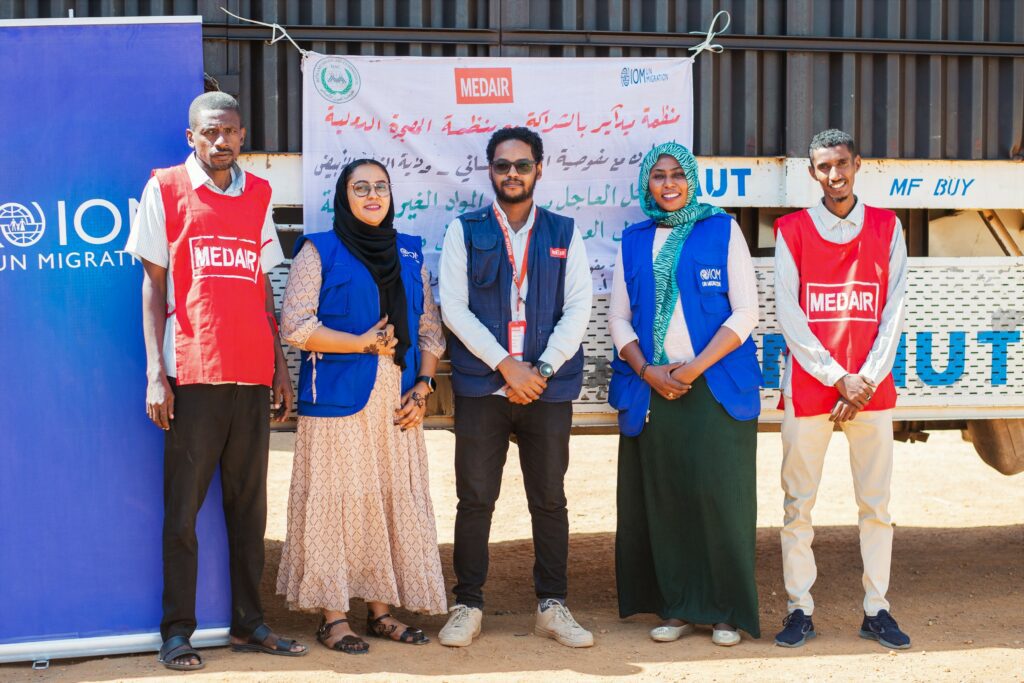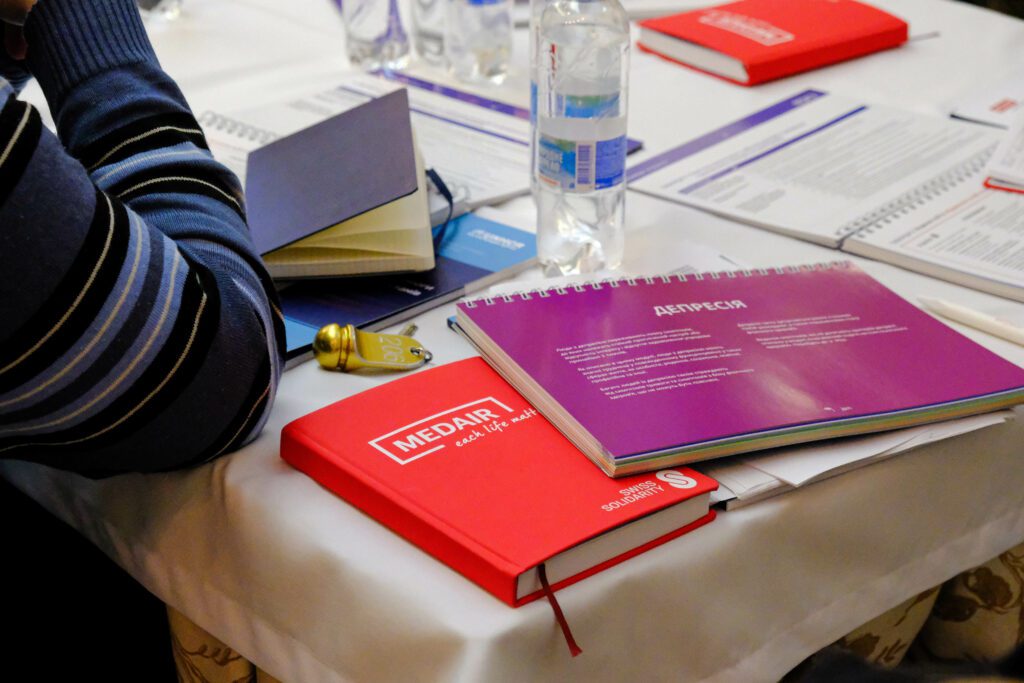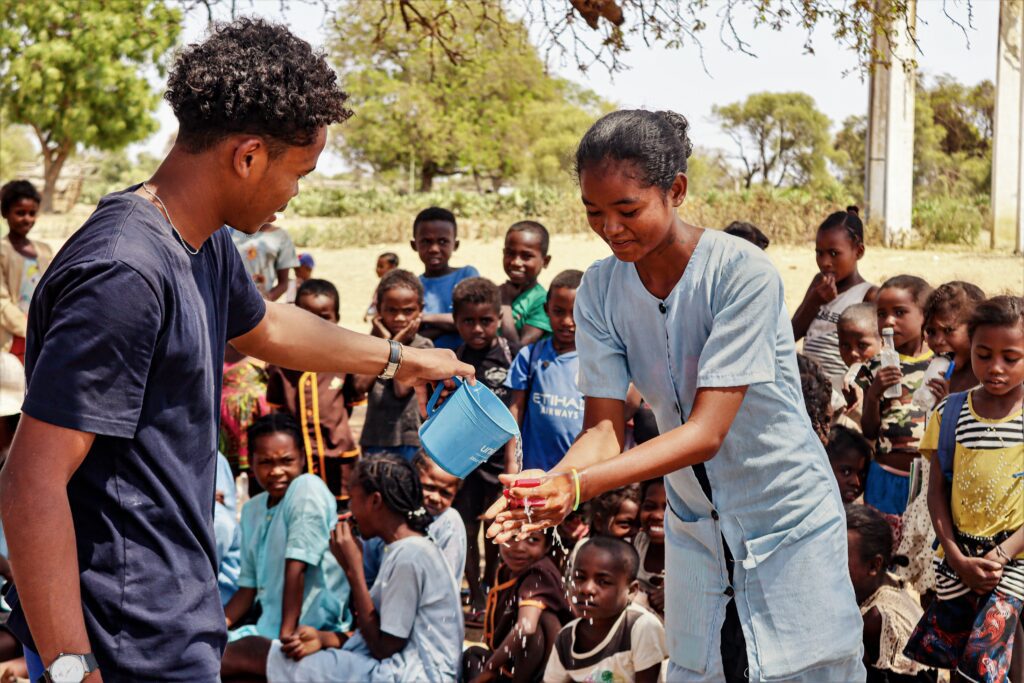It’s no secret that humanitarian work is rewarding and demanding in equal measure. The hours are long, you’re often away from family, and you work in high-stress environments affected by conflict or natural disasters. Effective interventions are built by effective staff – and that means making sure you can recruit people with new ideas, new perspectives, and a passion for their work.
Recruitment in pandemic times
Recruiting the right people to work in humanitarian settings is challenging at the best of times, and infinitely more so the middle of a pandemic. For starters, there is an overall global increase in demand for some of the key skills needed in the humanitarian sector, including health, logistics, and engineering. Travel restrictions mean we’re not always able to get new staff into the field. And then there’s the small matter of Medair’s Relief & Recovery Orientation Course (the ROC), a key component of our recruitment process for staff that comprises of a large number of people traveling to Switzerland and gathering together in one enclosed space.
Since the pandemic began, we’ve changed two components of our recruitment practices. First, if we can’t bring people to the ROC, we take the ROC to them. Second, where we can’t get staff to the field, we fill a post remotely with experienced colleagues.
The Virtual ROC
The ROC is a hallmark of Medair’s recruitment process, a weeklong set of exercises that assesses a candidate’s suitability to work with Medair. The exercises on the ROC are a closely guarded secret, but they have one thing in common: they all replicate the realities of life and work on a humanitarian response.
Because we couldn’t halt recruitment during the pandemic, we had to find a way to continue the ROC without travel or large-scale gatherings. That meant coming up with a novel solution: an online edition of the ROC, called the virtual ROC (vROC).
Needless to say, recreating a virtual humanitarian setting was no small or easy task. We started with a story and worked our way out from there, establishing exercises for the participants to complete along the way. Staff were asked to play key characters within the story, using video calls to interact with the participants and changing their backgrounds to transform living rooms and home offices into humanitarian settings. Different chats and meeting rooms were established to ensure that the ‘learning’ and ‘doing’ aspects of the ROC remained separate.
On the first vROC in November 2020, we quickly discovered that there were challenges we’ve never had to contend with on any in-person ROC. The time differences alone made for interesting working hours: group exercises that finished at 22h in Geneva would finish at 13h in Vancouver and midnight in Nairobi. Although we screened for candidates with strong internet connections, there were nonetheless moments where participants and staff suddenly vanished from a group exercise only to reappear minutes later and find that the entire scenario had changed. And, of course, every session was peppered with the now familiar refrains of, ‘Can you hear me?’ and ‘Can everyone put themselves on mute, please?’ Because we knew there would be teething issues, our first vROC was small: just eight participants, all experienced relief workers familiar with the sector demands. Our next vROC, scheduled for March 2021, will be double the size.
‘It proved again that we’re able to adapt to difficult circumstances and provide the ROC in a way that hasn’t been possible before,’ says Pete, the HR Recruitment Team Lead and the coordinator of the November vROC. ‘The ultimate goal of any ROC is to find the next generation of Medair employees, and the vROC gives us this ability even in the pandemic-hit world. We were delighted with the result and the candidates found.’
Jacob, a participant on the vROC agrees. ‘It made me feel that it was a physical and real session,’ he says. ‘The contents of the course extensively covered all areas of the challenges humanitarian workers experience in the field.
Fellow participant Simon agrees. ‘It was a complete pack of learning,’ he says. ‘It gave me another opportunity to get in touch with many great humanitarian professionals from different parts of the world.’
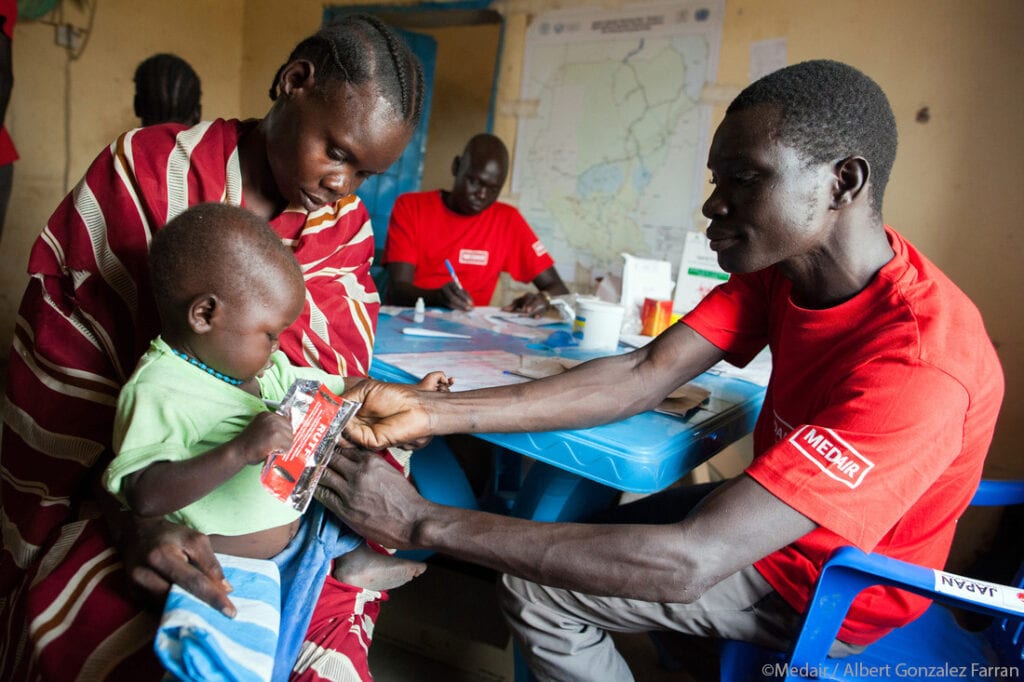
Remote working
The second adaptation we’ve made to recruitment in pandemic times is adjusting to remote work. Like everyone else in the world, our head office and field teams have had to adjust to working from home. It has been challenging, and yet not as impossible as it first seemed. In fact, working remotely has become an opportunity.
ROC cancellations in early and mid-2020 meant we could no longer recruit new staff to come and work with us, which we worried would lead to staffing shortages in field locations. Being open to adapting positions for remote work gave us greater flexibility to fill roles with one of our most precious resources: experienced Medair staff who have chosen to leave full-time field-based roles.
The decision to leave full-time field positions is never an easy one to make and the desire to be closer to loved ones or to start a family of one’s own can factor into that decision. Remote working gives us the opportunity to use our former colleagues’ existing knowledge and experiences at a time when we need their expertise most. For example, former field staff have first-hand experience in working with the constraints that impact our ability to scale-up or implement programming – things like procurement limitations or road infrastructure – and can take these into consideration while also mindful of the need to set up socially distanced distributions, or procure face masks and hand sanitizer for field teams. For our former field staff, it’s an opportunity to support humanitarian interventions and do work they love without leaving the home lives and families they’ve established.
Recruitment in 2021
Like every other organisation we’ve had to change the way we work during the global pandemic – including in our recruitment practices. We’ve been able to connect to potential new staff through the vROC and re-connect with former staff who are eager to do the work they love without needing to leave their families. It’s likely that these trends will continue into 2021. It’s a think-on-your-feet, make-it-work, win-win situation – and that’s really the best we can hope for at the moment.
This content was produced with resources gathered by Medair field and headquarters staff. The views expressed herein are those solely of Medair and should not be taken, in any way, to reflect the official opinion of any other organisation.


